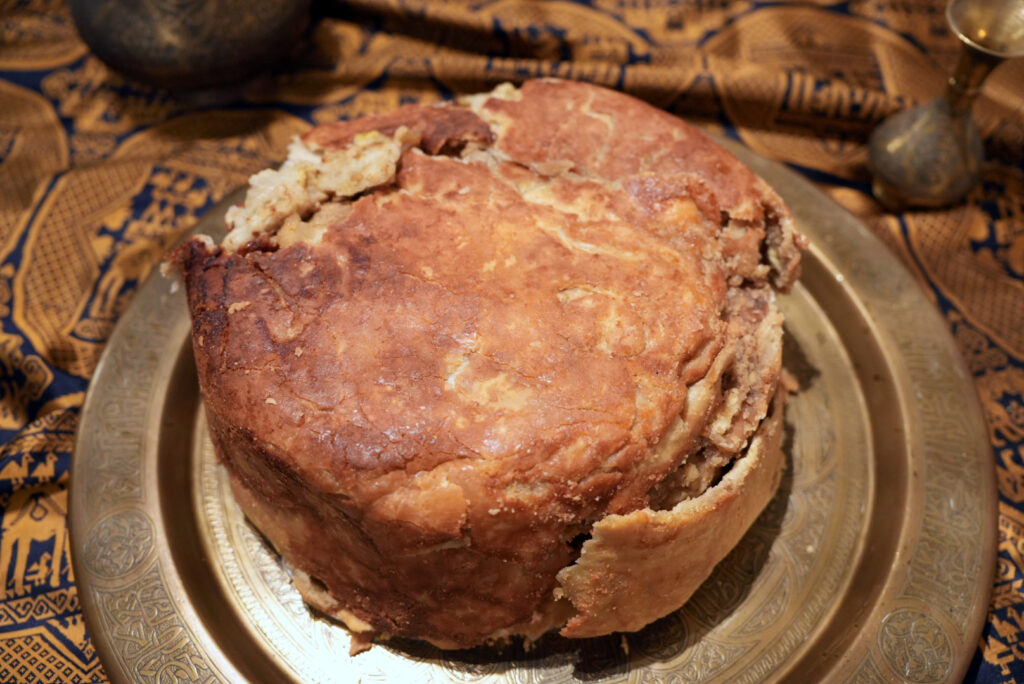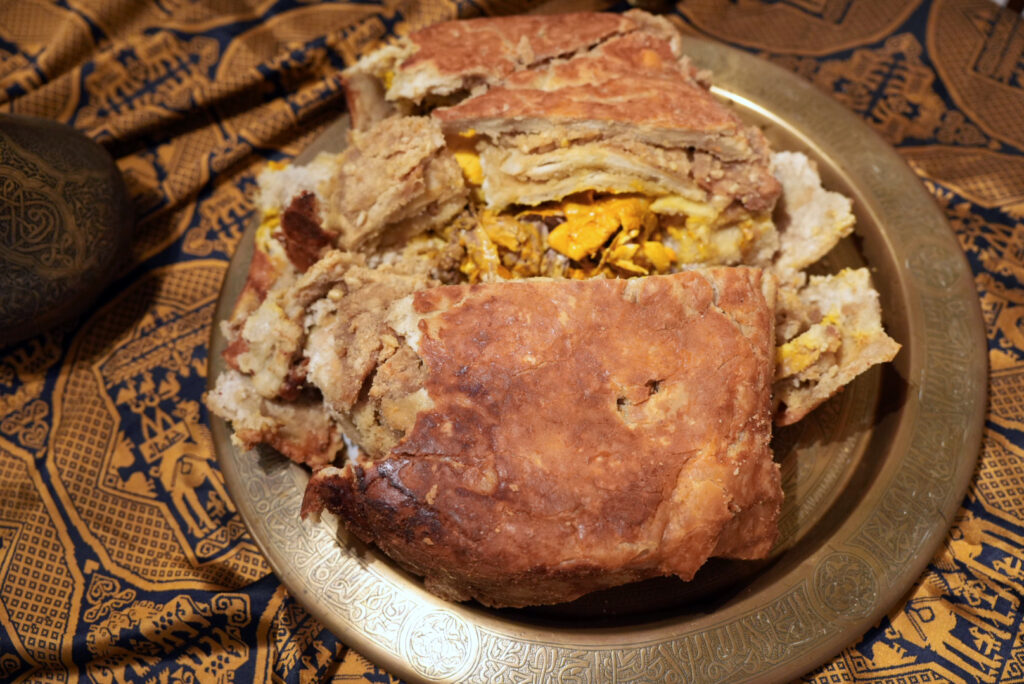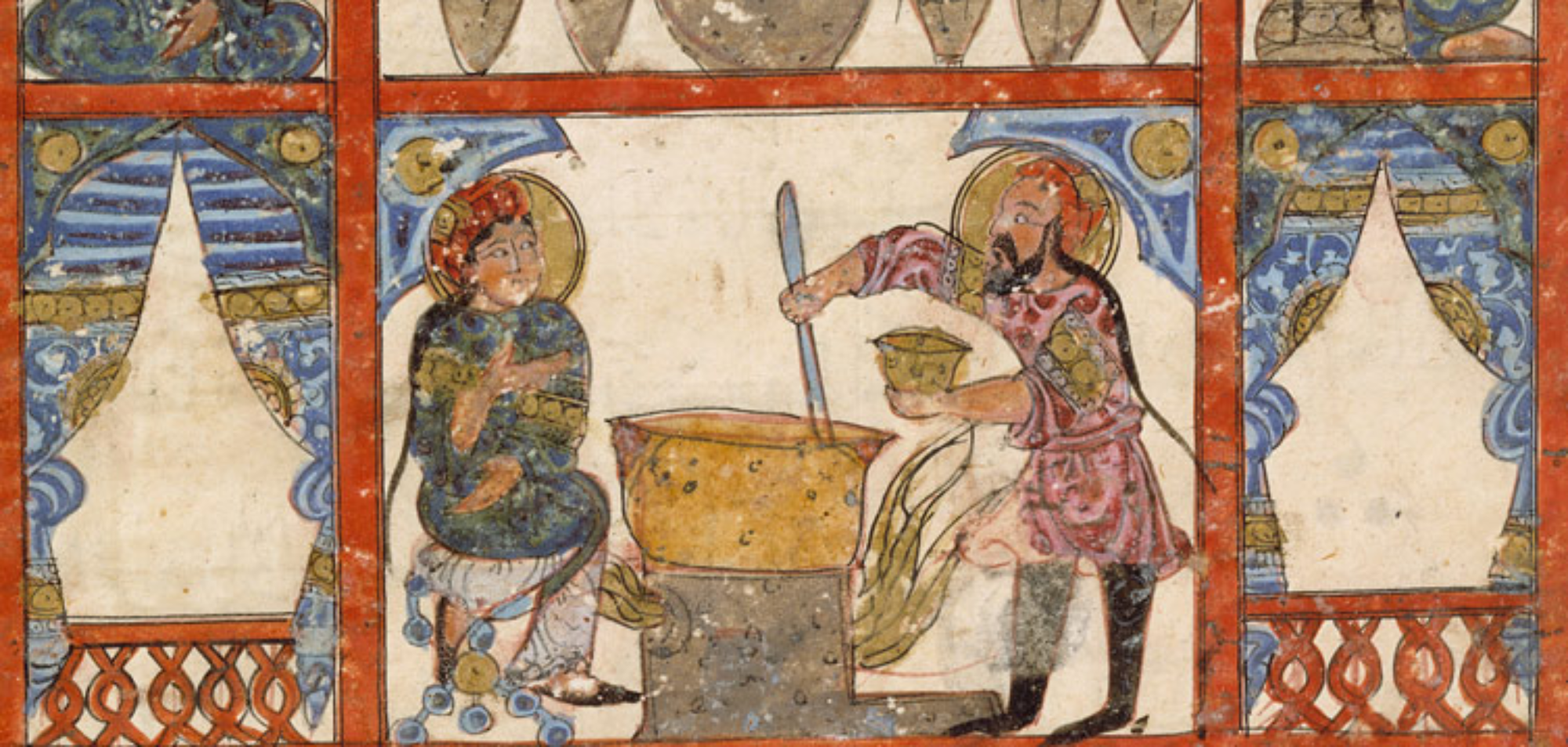A unique recipe from The Exile’s Cookbook and an Andalusian-North African variant of a medieval classic, the judhaba (جوذابة), a dish of Persian origin which in its Near Eastern iteration was a drip pudding, with a chicken being roasted over a fruit-layered pudding. In the Muslim West, the dish was subject to some dramatic changes and came in two guises, one without chicken and another with chicken buried in layers of flatbreads, which is recreated here.
A plump chicken with its breast split open is cooked with olive oil, salt, pepper, cinnamon, spikenard and cardamom until it is done, after which it is is again cooked in rose water until the liquid has completely evaporated. At this point, it is time to make the flabreads (رقاق, ruqāq), which will be used. The sides and bottom of a a new pot — stone or earthenware — are coated with pounded kidney suet, and then flatrbreads are spread on the bottom, making sure the edges hang over the sides of the pot as they will be used to cover others later.
After sprinkling on sugar, almonds, cloves, spikenard, rose water, camphor and olive oil, another flatbread (or two) are added, on which sugar, almonds, spices, rose water and olive oil are sprinkled. This layering continues until you reach half the height of the pot, which is when you add the chicken to the centre after having rubbed it with saffron dissolved in rose water. Then continue the layering as before until you reach the top of the pot. At this point, the flatbreads dangling over the sides of the pot are used as a cover and then the pot is covered with a lid and sealed with dough before baking until done.
Although the recipe does not specify this, the judhaba was tipped out of the pot maqluba style, simply because it was the easiest way to serve it without destroying this ‘wonderfully crafted dish, fit for kings’, as the author puts it. And on top of that it is very nutritious — as well as being very sweet!
In light of the similarities, this dish may be considered a precursor to the modern Moroccan basṭīla (بسطيلة), usually known in English as pastilla or bstila.


